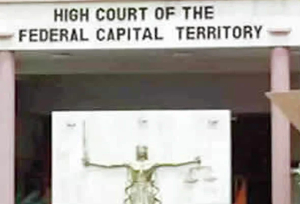.... Bad roads, poverty, etc
Tamale (Chronicle) -- The desperate effort by government to widen the development and the socio-economic fortunes of the people of the Northern Region is likely to become a fiasco unless special attention is given to the poor road network in the area and other critical basic amenities.
It is obvious that the region is endowed with immeasurable potentials or resources that could be easily exploited to bring everlasting smile on the faces of the people and also develop it to suit its status as the largest region in Ghana.
However, The Chronicle can confirm that the major challenge militating against the smooth socio-economic development of the region is the poor and unmotorable nature of roads.
It is estimated that about 85% of the roads in the northern regions is completely inaccessible which is making business activities and transporting of farm produce to the urban centers very difficult.
Out of the 20 districts in the region, only four (4) including the capital Tamale, Savelugu, Yendi and Walewale have little access to tarred roads.
Meanwhile, apart from being one of the centers of attraction for local and international tourists, northern region is also the main food basket of Ghana, with annual contribution of approximately 40% of total agricultural produce.
As a result of the poor road networks, the region has for the past decades suffered serious socio-economic setbacks because most investors and business organizations are reluctant to establish in the deprived districts.
The Chronicle in a recent visit to some of the deprived areas in the Region discovered that, both the immediate past National Democratic Congress (NDC) and the ruling New Patriotic Party (NPP) governments have made some significant efforts in providing some amenities including potable drinking water, educational and health facilities, market centers and electricity for the people, but the issue of good road network is yet to be addressed.
In the East Gonja District, some youth group and three opinion leaders took this reporter to Kumdi and Kpandai near Salaga, the district capital, where one big river called Daka had cut the area (Kumdi-Kpandai) away from the district capital.
Farmers in the communities could not transport their foodstuff to the urban centers after harvesting. As witnessed by this reporter, Taxi Caps, Urvan and Benz Buses could not directly enter the Kumdi and Kpandai townships because of the river, which covers wider area. Travelers onboard vehicles and farmers who farm behind the river are compelled to take the few available Canoes at a high cost of GH2.00 whilst other farmers with motorbikes pay GH3.00 each.
Another district of serious concern is the Tolon-Kumbungu where their main road linking the area to Tamale especially Nawuni-Dalun-Tamale road, has clearly become a death trap for residents and travelers.The district is the backbone of the regional capital Tamale, as it draws its main drinking water from there, building materials (sand and gravels), food and fish.
About 80% of sands and gravels used for buildings and other development activities in Tamale and other nearby districts are produced in Nawuni. Nawuni is also the main fishing and rice community in the region.
However, very little or no attention has been given to the area in terms of development. Apart from its narrowness, the Tamale-Kumbungu-Nawuni road has developed deep potholes far beyond imagination.
The Chronicle visit to the area uncovered that heavy trucks ply the road due to the commercial activities in the area especially in Nawuni.
Meanwhile, the Northern Regional Minister, Alhaji Mustapha Ali Idris in an interview told The Chronicle that though the region was seen as underdeveloped, government was doing everything possible to change the situation. He disclosed that the Salaga-Kpandai road, which hosts the Daka River, had been awarded on contract.
The Minister therefore called on the people to maintain peace and tranquility to encourage government and its partners to honour their promises.
General News of Tuesday, 8 January 2008
Source: Chronicle












